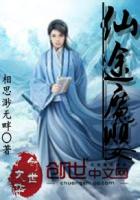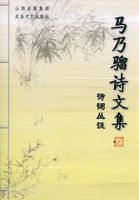He wished well to mankind;he detested abuses,but he hated neither the corrupted nor the corruptors;and it might almost seem that he rather valued the benevolent end,because it gave employment to his faculties,than valued the employment because it led to the end.This is implied in his remark made at the end of his life.He was,he said,as selfish as a man could be;but 'somehow or other'selfishness had in him taken the form of benevolence.(15)He was at any rate in the position of a man with the agreeable conviction that he has only to prove the wisdom of a given course in order to secure its adoption.
Like many mechanical inventors,he took for granted that a process which was shown to be useful would therefore be at once adopted,and failed to anticipate the determined opposition of the great mass of 'vested interests'already in possession.
At this period he made the discovery,or what he held to be the discovery,which governed his whole future career.He laid down the principle which was to give the clue to all his investigations;and,as he thought,required only to be announced to secure universal acceptance.When Bentham revolted against the intellectual food provided at school and college,he naturally took up the philosophy which at that period represented the really living stream of thought.To be a man of enlightenment in those days was to belong to the school of Locke.Locke represented reason,free thought,and the abandonment of prejudice.Besides Locke,he mentions Hume,Montesquieu,Helvétius,Beccaria,and Barrington.Helvétius especially did much to suggest to him his leading principle,and upon country trips which he took with his father and step-mother,he used to lag behind studying Helvétius'De l'Esprit.(16)Locke,he says in an early note (1773-1774),should give the principles,Helvétius the matter,of a complete digest of the law.He mentions with especial interest the third volume of Hume's Treatise on Human Nature for its ethical views:'he felt as if scales fell from his eyes'when he read it.(17)Daines Barrington's Observations on the Statutes (1766)interested him by miscellaneous suggestions.The book,he says,(18)was a 'great treasure.''It is everything,àpropos of everything;I wrote volumes upon this volume.'Beccaria's treatise upon crimes and punishments had appeared in 1764,and had excited the applause of Europe.The world was clearly ready for a fundamental reconstruction of legislative theories.Under the influence of such studies Bentham formulated his famous principle --a principle which to some seemed a barren truism,to others a mere epigram,and to some a dangerous falsehood.Bentham accepted it not only as true,but as expressing a truth of extraordinary fecundity,capable of guiding him through the whole labyrinth of political and legislative speculation.
His 'fundamental axiom'is that 'the greatest happiness of the greatest number is the measure of right and wrong.'(19)Bentham himself(20)attributes the authorship of the phrase to Beccaria or Priestley.The general order of thought to which this theory belongs was of course not the property of any special writer or any particular period.Here I need only observe that this embodiment of the general doctrine of utility or morality had been struck out by Hutcheson in the attempt (as his title says)'to introduce a mathematical calculation on subjects of morality.'This defines the exact reason which made it acceptable to Bentham.For the vague reference to utility which appears in Hume and other writers of his school,he substituted a formula,the terms of which suggest the possibility of an accurate quantitative comparison of different sums of happiness.In Bentham's mind the difference between this and the more general formula was like the difference between the statement that the planets gravitate towards the sun,and the more precise statement that the law of gravitation varies inversely as the square of the distance.
Bentham hoped for no less an achievement than to become the Newton of the moral world.
Bentham,after leaving Oxford,took chambers in Lincoln's Inn.His father on his second marriage had settled some property upon him,which brought in some ?90a year.He had to live like a gentleman upon this,and to give four guineas a year to the laundress,four to his barber,and two to his shoeblack.In spite of Jeremy's deviation from the path of preferment,the two were on friendly terms,and when the hopes of the son's professional success grew faint,the father showed sympathy with his literary undertakings.
Jeremy visited Paris in 1770,but made few acquaintances,though he was already regarded as a 'philosopher.'In 1778he was in correspondence with d'Alembert,the abbéMorellet,and other philanthropic philosophers,but it does not appear at what time this connection began.(21)He translated Voltaire's Taureau Blonc(22)--a story which used to 'convulse him with laughter.'















